![]() — Home — Business News
— Home — Business News
Weekly Business News from Myanmar
-
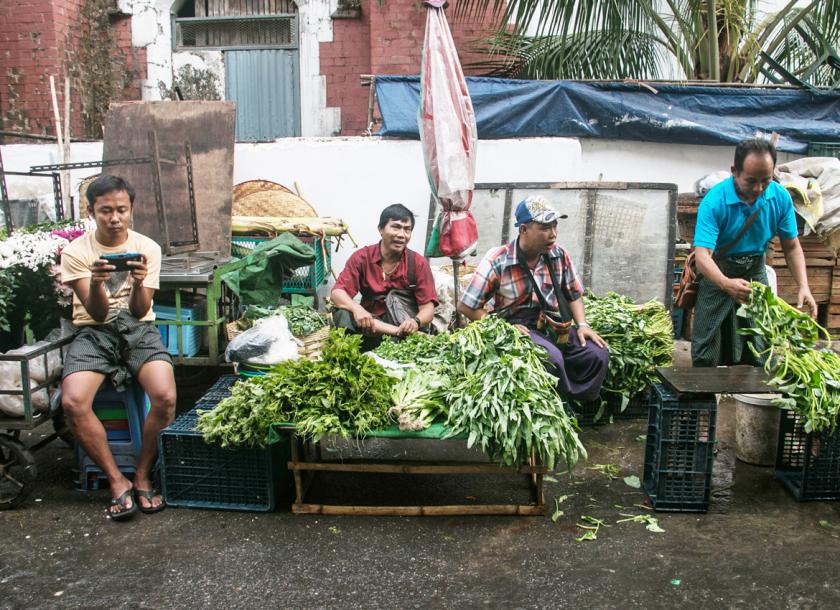
Government expects Myanmar's growth rate to reach 6.8 percent this fiscal year 2017 – 2018 despite the slowdown in economic growth
Despite the slowdown in economic growth, the growth rate for Myanmar is expected to reach 6.8 percent for the fiscal year 2017-18, U Htin Kyaw, the country’s president, said during the national planning commission’s meeting on Tuesday, according to the president’s office. This is because the weather in the time of harvest was favourable as well as other factors such as the inflow of foreign investment, increasing productivity of SMEs, improved transport infrastructure, tourism growth and other services, the president said. Small and medium-sized enterprises (SMEs) are expected to further develop and SMEs will have access to loans and the private sector will continue to growth, he added. SMEs will be driving most of the economic growth of the country. -
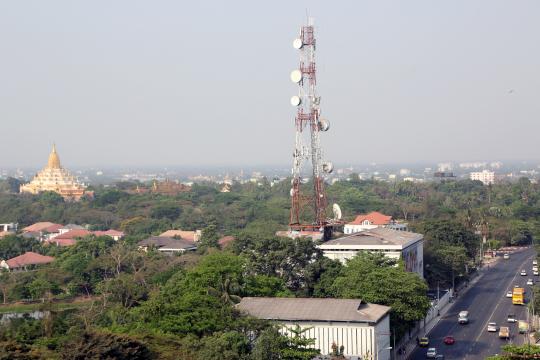
Telecommunication sector attracted the most investment last year and will continue attracting investment this year
Myanmar saw the largest investment in its communications sector last year and this year will also see encouraging investment in telecommunications and communication services, said Aung Naing Oo, secretary of Myanmar Investment Commission (MIC). “The telecommunications sector is improving continuously. It is value added, of course. More telecommunications services will come this year.” He however pointed out some unexpected disadvantages during the year. “Things do not come as we expected. The incidents in Maungdaw, Rakhine State harmed the image our country. We had almost finished negotiations with the European Union to sign an investment protection agreement. “But the EU suspended the signing. What we expected first is that this agreement would be signed in 2017, then we would try to promote the investment in our country in 2018 and 2019. We took three years to do that,” Aung Naing Oo commented. -
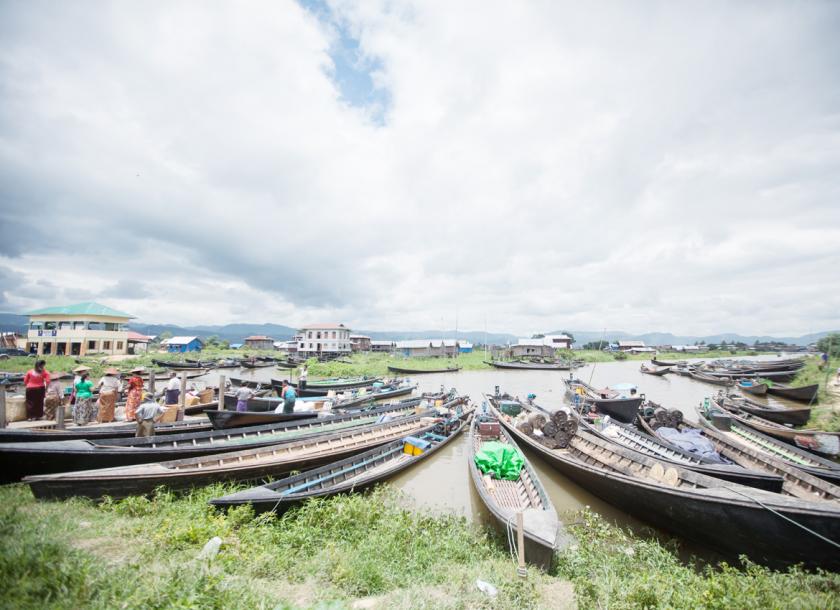
To reach Myanmar's unbanked population, Arianespace will launch its first satellite next year to expand bank's national coverage
Richard Bowles, regional managing director for ASEAN at Arianespace, which launches satellites, is convinced banks’ struggle to reach Myanmar’s unbanked population will end with the launch of its first satellite, slated for some time next year. “Satellites are an important part of a country’s economic development. Looking at Myanmar’s satellite leasing capacity, it’s a good idea to have one indigenous satellite operator to give the banks the nationwide coverage they need to reach the greater population,” he said. Myanmar’s banks have in recent years established a web of Automated Teller Machines (ATMs) to make banking easier for customers within major cities like Yangon and Mandalay, but also to capture a larger pool of people who have yet to open bank accounts. In the outskirts of the city and beyond though, network coverage falls away and huge swathes of the population are still unable to rely on ATMs to conduct their banking affairs. -
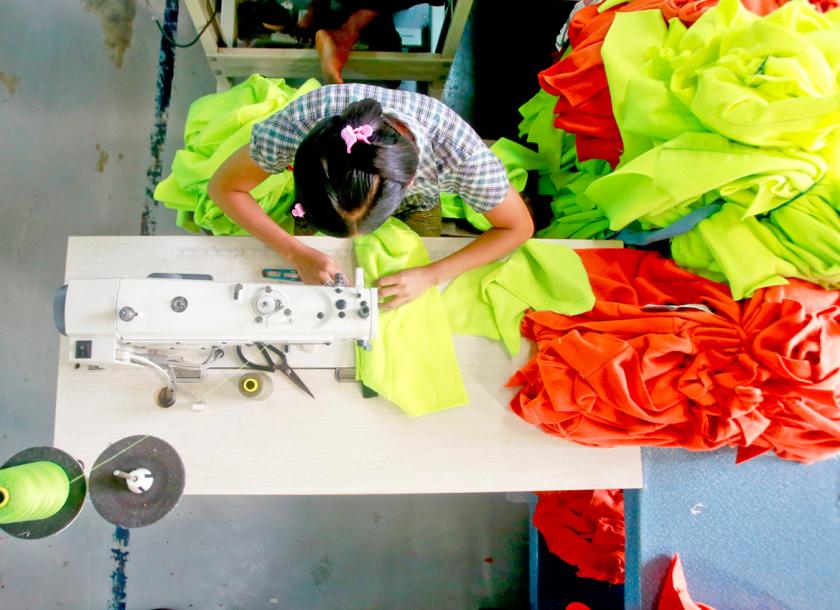
Myanmar Investment Commission seeks to scale up domestic and international investments in logistics and manufacturing sectors
The Myanmar Investment Commission (MIC) is seeking to scale up domestic and international investments in the logistics and manufacturing sectors, according to law firm DFDL. The commission invited investors to develop logistics services located in major urban areas as well as trading hubs on December 26 last year. The specific types of investment areas open for participation include dry port services, bonded warehouse services, highway bus and freight terminals, as well as warehouses and wholesale centres. Mandalay’s first dry port - developed by Kerry Logistics - started running in July last year, according to the Mandalay Region Chamber of Commerce and Industry (MRCCI). A dry port is an inland intermodal terminal directly connected by road or rail. -
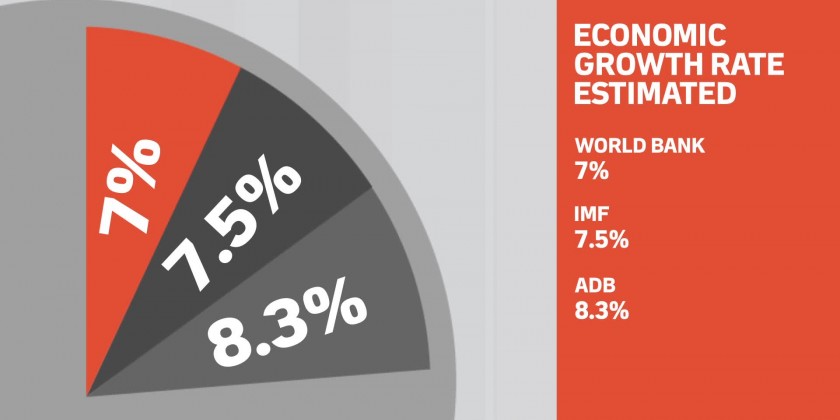
World Bank estimates Myanmar’s economic growth rate to achieve 7 percent target of GDP this fiscal year
2017-2018 Fiscal Year has passed the first six months. Ratio of deficit and GDP was 4.37 per cent in Budget Estimate and 4.38 per cent in Revised Budget Estimate. In scrutinizing demands for additional grants, it was found that the excess of deficit was attributed to allowance of demands for additional grants of hydro power plants under construction, which are to be granted only after scrutinizing at different levels. It includes essential matters for fencing Rakhine State Border Lines and for building roads for May Yu range linking routes, approved by the Union Government.” said President U Htin Kyaw at the meeting 3/2017 of the Financial Commission held in Nay Pyi Taw on 2nd October, 2017. -
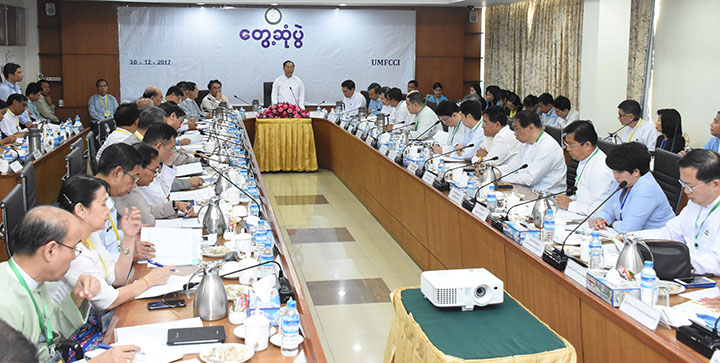
In order to stimulate SME development in 2018, the 13th meeting for SME development was held in Yangon
At the 13th meeting between Vice President U Myint Swe and Myanmar businesses held yesterday, the Union Minister for Industry U Khin Maung Cho said SME development works are to start early next year. For now, SME development central committees and three work committees, for SME agencies, fund management and work reviews/reports, led by Union Ministers, were formed and an official announcement will be made soon, it is learnt. In order to recognise the development of SMEs, competition by work sectors will be held in states and regions, said the Union Minister. “For SMEs to know all their works, a competition will be held on recognising entry into the market. Their products will be displayed for all to know”, the Union Minister said. The competitions are scheduled to be held in the second week of January, for which Japan will provide technical support and help judge the products. The products that are up to standards in the regional competitions will compete in the final competition that will be held in Nay Pyi Taw, added the Union Minister. Vice President U Myint Swe said the government is using various methods for SME sector development and urges the private businesses to work together for this. “SMEs are the main driving force in the country’s economy. If SMEs are implemented, economy will develop. We are expecting much for SME sector development” said the Vice President. -
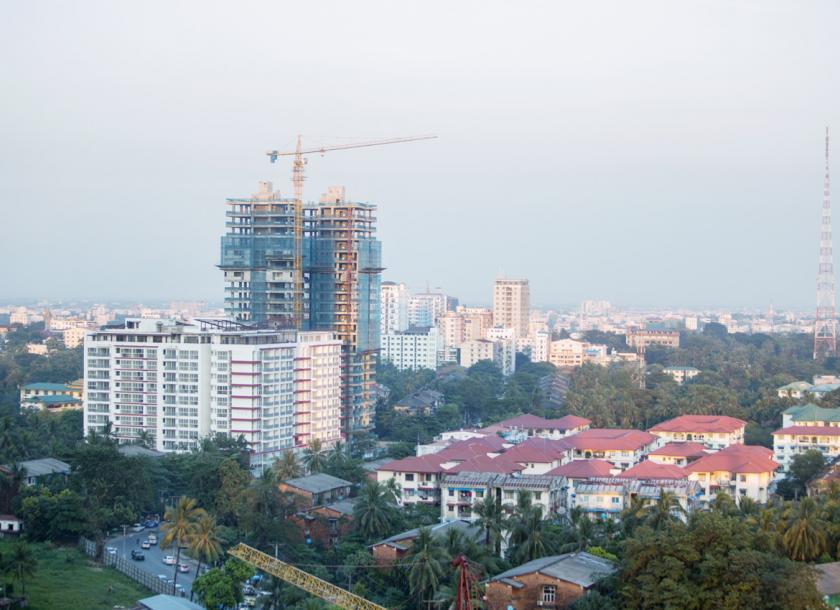
After the government released the Condominium Law, real estate agents foresee good prospects for the Myanmar property market in 2018
Real estate agents believe prospects are looking good for the Myanmar property market in 2018. “Prospects in the real estate market will be brighter this year after the government released the rules to the Condominium Law at the end of last year,” said U Thet Naing Oo, managing director of real estate legal services firm Maverick Management Company. “We have also seen a rise in the number of housing loans in Myanmar last year,” he added. The new Condominium Law had been enacted on February 2016. However, rules to the legislation were only released in December last year. Under the new rules, foreigners will now be permitted to develop property, subject to approval from the Myanmar Investment Commission. The minimum requirements for a condominium project are to build at least 6 floors on 0.5 acres of land area. -
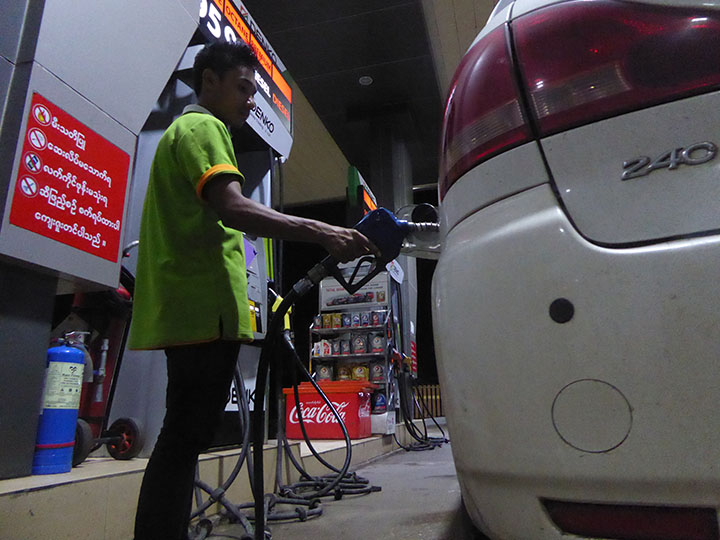
Myanmar Petroleum Trade Association (MPTA) will submit a proposal to the Ministry of Electricity and Energy, requesting the Ministry to scale down sulphur contents from 500 ppm (part per million) to 10 ppm in diesel fuel
The Myanmar Petroleum Trade Association (MPTA) will submit a proposal to the Ministry of Electricity and Energy asking it to reduce the sulphur content from 500 ppm (parts per million) to 10 ppm in diesel fuel, said Dr Win Myint, secretary of MPTA. “Once we get the approval from our association members in the upcoming meeting, we will submit the request within a month,” he added. Many countries keep the content of sulphur in ultra low diesel or premium diesel to minimise the fuel’s environmental impact. “The consumption of high sulphur diesel results in high level of pollutants. The number of vehicles on the country’s roads is increasing, prompting us to call for this proposal to prevent severe levels of air pollution,” said Dr. Win Myint. Previously, the country consumed diesel having 5,000 ppm of sulphur, and later reduced the level to 500 ppm. Premium diesel with 10 ppm is also imported and distributed in the domestic market. The percentage of those consuming this premium diesel has increased from 10 to 30 per cent. -
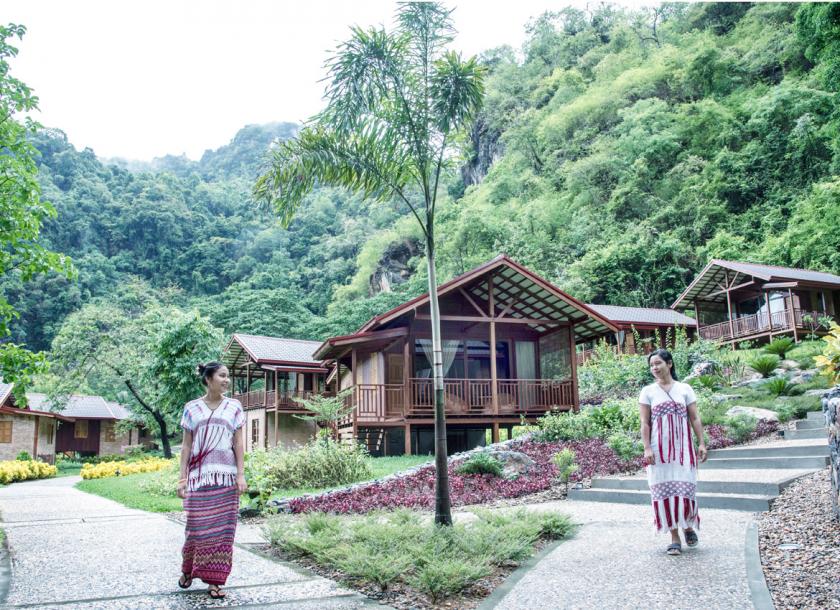
Trading volumes of Yangon Stock Exchange listed companies doubled last week
The Myanmar Stock Price Index closed last Friday at 462.41, down by more than 2 percent since trading resumed in the New Year. Nevertheless, trading volumes doubled during the week, with almost 22,000 shares exchanging hands on Friday compared to just over 11,000 at the start of the week. A total of 43,524 shares were traded over the three-day week. Myanmar Thilawa SEZ Holdings (MTSH) accounted for the bulk of the trading last week, after the company released its results for the six months to September 30, 2017 on December 29, the last working day of 2017. MTSH announced revenues amounting to K8.1 billion, which is up 36 percent compared to the same period in the previous year, owing mainly to an increase in property and infrastructure development activities in Zone A of the Thilawa industrial zone by subsidiary Thilawa Property Development (TPD). During the period, TPD completed the construction of three workers’ quarters, which it is now leasing out to companies at Thilawa. It also completed two four-storey shop house blocks, some of which have been sold. -
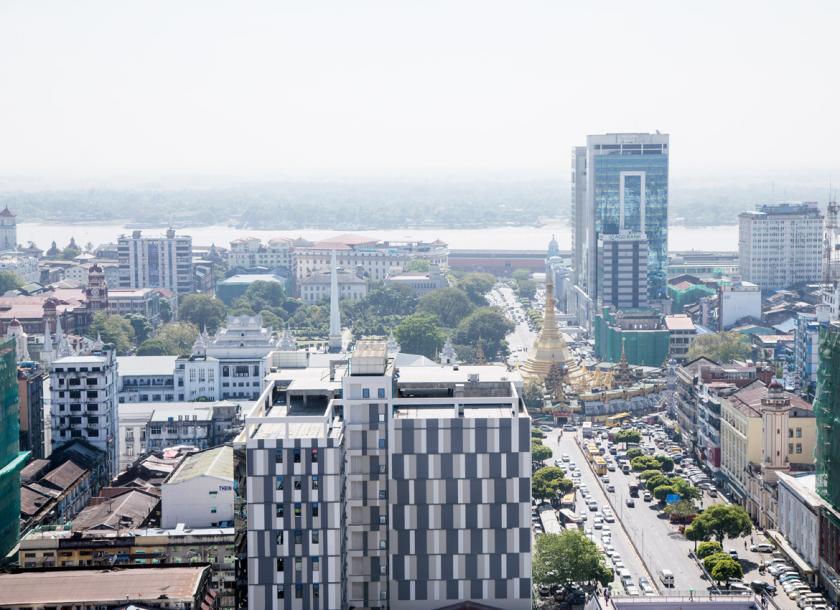
Ongoing humanitarian crisis in northern Rakhine State expected to reduce Foreign Direct Investment (FDI) from the west to Myanmar in 2018 (U Aung Naing Oo, General Director of DICA)
Foreign direct investments (FDI) to Myanmar from the West are expected to be less than previous years’ as a result of the ongoing humanitarian crisis in northern Rakhine, said U Aung Naing Oo, secretary of the Myanmar Investment Commission (MIC) and general director of the Directorate of Investment and Company Administration (DICA). U Aung Naing Oo was speaking about the investment outlook in Myanmar for 2018 at the office of the Union of Myanmar Federation of Chambers of Commerce and Industry (UMFCCI) on Sunday. He added that the final stage of negotiations over an Investment Protection Agreement (IPA) between Myanmar and the EU have been suspended as a result of the conflict. The IPA, which had taken three years to negotiate, would have offered investors from both sides a predictable and secure investment environment, ensured they are treated in a fair and equitable way and that investments would not be unfairly taken away without fair compensation.
Business News
Copyright © 2014 Business Information Center All Rights Reserved.







